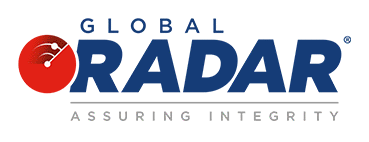Over the past decade, the United States has made significant strides in upping the ante against both domestic and international money laundering and illicit financial exploits. While the country’s anti-money laundering (AML) crusade is largely headed by the Department’s of Justice and Treasury, respectively, various independent agencies of the United States government – ones that oversee many of our key financial markets – have also enacted staunch legislation to better secure these avenues of trade and business. While many of the regulations in place have helped to grossly reduce financial misconduct secondary to the potent repercussions to follow should these laws be broken, it remains a challenge for these agencies to follow clandestine activities that go on behind closed doors. As a result over this time period, additional programs have been developed by government agencies that include the Securities and Exchange Commission (SEC), Commodity Futures Trading Commission (CFTC) and even the Internal Revenue Service (IRS) to reward those who come forward to report fraud or potential violations of federal commodities, securities, and tax laws.
While the details of each individual program slightly vary depending on each covered sector(s), these “whistleblower” rewards initiatives provide financial compensation of anywhere between 10-30% of the monetary sanctions total collected as part of the successful actions brought forth by these respective agencies. These sums can be rather substantial, as notices of Covered Actions are only posted when the agency obtains a final judgment or settlement for more than $1 million in total funds. As an additional incentive for coming forward, these agencies keep the identities of whistleblowers completely confidential (alleged improprieties can even be submitted through an attorney) while also providing protection to any whistleblower who faces retaliatory action by an individual/company thereafter. These programs have had immense success to date, with the aforementioned agencies collectively paying out billions of dollars in total rewards to hundreds of whistleblowers who provided information that led to successful enforcement actions over the last several years alone.
Yet despite the triumphs that various smaller-scale agencies have had in this regard to date, the Treasury Department’s anti-money laundering whistleblower program has largely lagged behind since being established in 2021. The tides may soon be changing however, as reports have confirmed that the program officially received a much-needed upgrade in December 2022. In signing the recent $1.65 trillion omnibus spending bill into law, President Biden also passed the Consolidated Appropriations Act 2023 – a spending package that will provide enhanced protections to individuals reporting money laundering and sanctions violations under the Anti-Money Laundering Whistleblwoer Improvement Act. Modeled off provisions of the Dodd-Frank Act which ultimately established the SEC and CFTC’s whistleblower programs, this Act also increases the amount that qualified whistleblowers will receive for successful actions up to par with that of its counterparts (i.e. no less than 10% of the monetary sanctions collected in the enforcement action). Previously the incentive for individuals to risk their livelihoods by coming forward was not guaranteed, as there had been no statutory minimum for AML whistleblower awards, making payments purely discretionary.2Attorneys had also been hesitant to take on clients for whistleblower cases because there was no bottom for how low a reward would be. The new measure effectively mends these fences, and analysts believe just these basic changes alone will help to significantly bolster the programs results.
The Act also establishes a fund to pay AML whistleblower awards. Like the SEC’s whistleblower fund, it is entirely financed by sanctions collected in whistleblower-assisted cases. This means that whistleblower awards are not reliant on the Congressional appropriations process and do not cost taxpayers any money.2 “There were some concerns that this program was all bark and no bite; now with these additional improvements, it gives it teeth and brings it directly in line with the [Securities and Exchange Commission] whistleblower award program,” said Jane Norberg, a former head of the SEC program who is now a partner at law firm Arnold & Porter Kaye Scholer LLP and who works with companies on whistleblowing issues.3
Even before the upgrade to the whistleblower program, 2022 was still a big year for money-laundering regulations enforcement – efforts that had seen a blow given the ramifications of the Covid-19 pandemic and changes to normal workflow processes internationally. Among some of the major collection cases seen last year were Danske Bank’s forfeiture of over $2 billion for failures related to money laundering controls. Materials manufacturer Lafarge S.A. also had to pay $778 million in fines and civil forfeiture to the Justice Department in October after pleading guilty to paying terror organization ISIS for protection of their business, while the USAA Federal Savings bank paid $140 million in penalties for failing to meet various requirements of the Bank Secrecy Act (BSA). The crypto market was also not spared, as Robinhood paid a $30 million penalty for failures in its crypto division with respect to its inadequate AML compliance program, while trading platforms Bitmex and Bittrex paid upwards of $30 and $53 million, respectively, for similar failures including conduct that violated U.S. sanctions (with Bittrex allowing its services to be used by individuals located in the Crimea region of Ukraine, Cuba, Iran, Sudan and Syria).1
With the newly overhauled whistleblower program in place, the Treasury Department expects 2023 to be an even bigger year for money-laundering enforcement. The new baseline for rewards payouts is undoubtedly a much greater incentive for employees to come forward and report wrongdoings from within their institutions. These developments are summed up well by Norberg who further stated, “Now with these additional strengthenings it’s time for banks and others subject to this legislation to sit up and pay attention, because this will be impactful.” This impact can be calculated by simply applying this percentage to last year’s fines, which can give one an idea of just how much money some people will be making this year by simply doing the right thing.
Citations
- Cox, Chelsey. “Treasury Fines Crypto Company $29.3 Million for Violating Multiple U.S. Sanctions, Bank Secrecy Act.” CNBC, CNBC, 11 Oct. 2022.
- Popovich, Ana. “Aml Whistleblower Improvement Act Becomes Reality as President Biden Signs Omnibus Spending Bill into Law.” Whistleblower Network News, 30 Dec. 2022.
- Sun, Mengqi. “Lawyers Expect More Anti-Money-Laundering Whistleblowers Thanks to Legislation.” The Wall Street Journal, Dow Jones & Company, 11 Jan. 2023.

